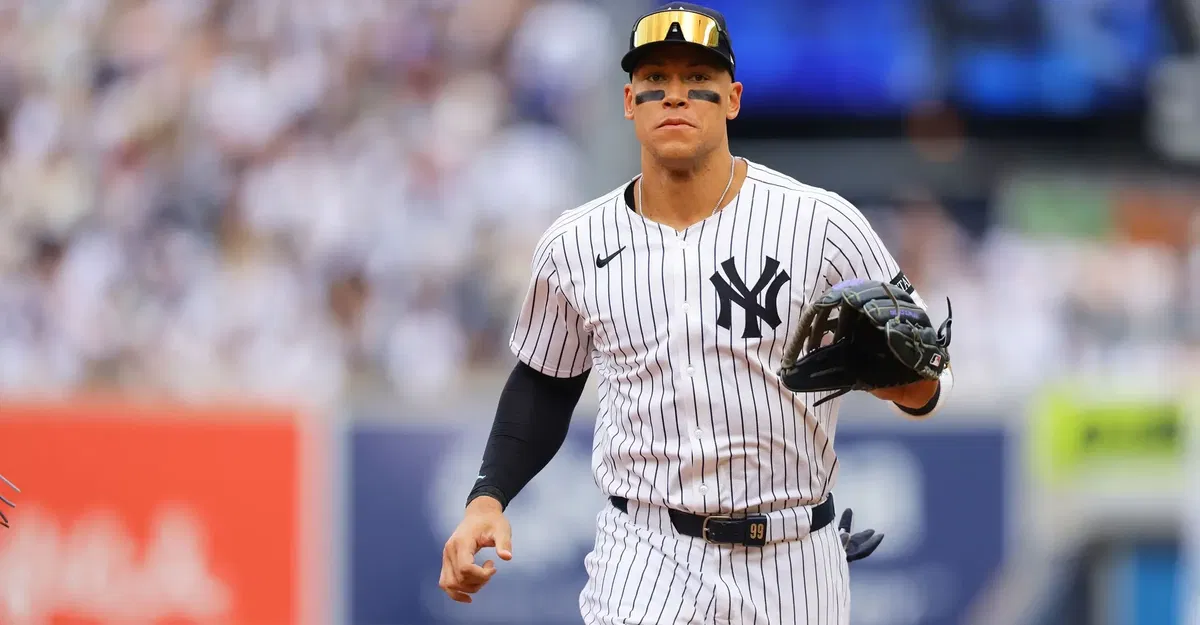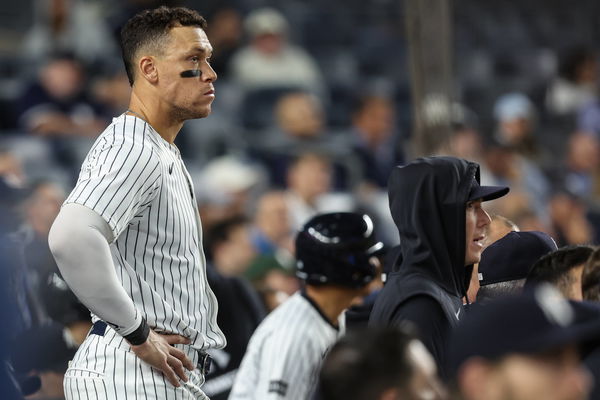
Imago
Image: IMAGO

Imago
Image: IMAGO
It is one thing to lose; it is another to collapse on the largest stage. For the Yankees, this is not just a rough patch—it is an unraveling in full view. What was supposed to be a statement series against their fiercest rival became a public beating, with the Red Sox outscoring them 48-22 over eight straight losses. Inside the team, frustration that had been simmering finally boiled over.
Watch What’s Trending Now!
This is not just related to fans booing and sports radio blasting the team. As per ESPN’s Buster Olney, “This team is under so much pressure going into this game. And it’s not only external pressure from the fans, but internal pressure from the Yankees because of how poorly they’ve played against the Red Sox during this eight-game losing streak.” Such an internal strain does not stay hidden—it highlights in every at-bat, every dropped ball, every sidelong glance in the dugout.
And then came the statement no one could ignore. Usually the measured voice of calm, this time Aaron Judge dropped the facade: “We’ve got to play better. That’s what it comes down to. Coaches can’t fix that, fans can’t fix that, media can’t fix that. It’s the players in this room. We’ve got to step up.” It was as if the star himself drew a line in the sand.
Giancarlo Stanton followed suit, cutting through the issue with honesty: “It’s not ideal. Unacceptable, we all know that. We’ve just got to get tomorrow.” His statement was short, sharp and painfully direct. This statement does not just echo in post-game pressers; the statement sticks to every star walking into that locker room the next day.

Imago
MLB, Baseball Herren, USA Boston Red Sox at New York Yankees Aug 21, 2025 Bronx, New York, USA New York Yankees designated hitter Aaron Judge 99 watches from the dugout in the ninth inning against the Boston Red Sox at Yankee Stadium. Bronx Yankee Stadium New York USA, EDITORIAL USE ONLY PUBLICATIONxINxGERxSUIxAUTxONLY Copyright: xWendellxCruzx 20250821_tdc_cc1_261
Now the concern lingers like the staleness of a losing streak: Is this a wake-up call? Or is this the sign of something breaking apart? Are Judge and Stanton’s public frustrations a rallying cry? Or it was a symptom of deeper fractures? For the team teetering in the Wild Card race, those answers could define not just this season, also what is left of their identity.
If tensions inside the team were not already at a boiling point, what unfolded on the field Saturday afternoon only poured gasoline on the fire.
Paul Blackburn’s Nightmare Debut Adds Fuel to the Fire
What was supposed to be a fresh beginning quickly spiraled into a spectacle of errors and frustration. Paul Blackburn, newly signed after the star’s release from the Mets, was thrown into the attention against the Yankees’ largest rivals—and the ninth inning became a disaster. Seven runs crossed the plate in what broadcaster Michael Kay called “an embarrassment,”, as miscues piled up like a bad comedy act. Anthony Volpe’s errant throw, Blackburn’s costly balk and a two-run homer were all low points in an inning fans will not soon forget.

Imago
MLB, Baseball Herren, USA Minnesota Twins at New York Yankees Aug 13, 2025 Bronx, New York, USA A view of a battling helmet held by New York Yankees left fielder Jasson Dominguez 24 during the ninth inning against the Minnesota Twins at Yankee Stadium. Bronx Yankee Stadium New York USA, EDITORIAL USE ONLY PUBLICATIONxINxGERxSUIxAUTxONLY Copyright: xVincentxCarchiettax 20250814_vtc_cb6_15185
However, beyond the ugly box score, this collapse symbolized something deeper. The Yankees’ eighth straight loss to the Red Sox was not just another L in the standings—it highlighted a team unraveling under force. Blackburn’s implosion was not related to one pitcher failing; it highlighted a collective breakdown, from shaky defense to a manager visibly exasperated in the dugout. For the fans used to pride and dominance, the image of a newly signed pitcher melting down at home against the Red Sox was the perfect, painful metaphor for where this team stands today: searching for answers while the season threatens to slip away.
Despite the Yankees’ internal turmoil, moments like Paul Blackburn’s poised related to serve as a reminder of what calm execution under force can achieve. The Yankees veterans could have the talent, however, cohesion remains the team’s missing piece. Can they channel their frustrations into a unified push? Will the team cracks widen?

